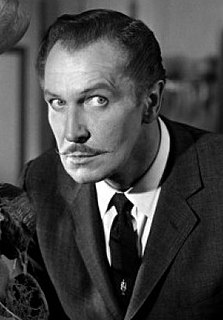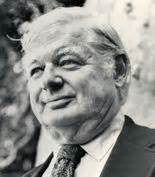A Quote by David Whyte
All of our great traditions, religious, contemplative and artistic, say that you must a learn how to be alone - and have a relationship with silence. It is difficult, but it can start with just the tiniest quiet moment.
Related Quotes
It would be erroneous to say Sohrab was quiet. Quiet is peace. Tranquility. Quiet is turning down the volume knob on life. Silence is pushing the off button. Shutting it down. All of it. Sohrab's silence wasn't the self imposed silence of those with convictions, of protesters who seek to speak their cause by not speaking at all. It was the silence of one who has taken cover in a dark place, curled up all the edges and tucked them under.
In general, it can be said that no contemplative life is possible without ascetic self-discipline. One must learn to survive without the habit-forming luxuries which get such a hold on men today. I do not say that to be a contemplative one absolutely has to go without smoking or without alcohol, but certainly one must be able to use these things without being dominated by an uncontrolled need for them.
This silence, this moment, every moment, if it's genuinely inside you, brings what you need. There's nothing to believe. Only when I stopped believing in myself did I come into this beauty. Sit quietly, and listen for a voice that will say, 'Be more silent.' Die and be quiet. Quietness is the surest sign that you've died. Your old life was a frantic running from silence. Move outside the tangle of fear-thinking. Live in silence.
Have you ever heard the wonderful silence just before the dawn? Or the quiet and calm just as a storm ends? Or perhaps you know the silence when you haven't the answer to a question you've been asked, or the hush of a country road at night, or the expectant pause in a roomful of people when someone is just about to speak, or, most beautiful of all, the moment after the door closes and you're all alone in the whole house? Each one is different, you know, and all very beautiful, if you listen carefully.
In college, in the early 1950s, I began to learn a little about how science works, the secrets of its great success, how rigorous the standards of evidence must be if we are really to know something is true, how many false starts and dead ends have plagued human thinking, how our biases can colour our interpretation of evidence, and how often belief systems widely held and supported by the political, religious and academic hierarchies turn out to be not just slightly in error, but grotesquely wrong.
In many other cultures, and certainly in the Eastern world, there's great value put on being, contemplating, and even withdrawing from the world at certain times or for certain periods of time. But we don't really have that in our culture, so it's difficult for many Westerners to learn how to sit down or lie down and just be quiet without going to sleep. We're just not trained to do it.
The true Indian sets no price upon either his property or his labor. His generosity is limited only by his strength and ability. He regards it as an honor to be selected for difficult or dangerous service and would think it shameful to ask for any reward, saying rather: "Let the person I serve express his thanks according to his own bringing up and his sense of honor. Each soul must meet the morning sun, the new sweet earth, and the Great Silence alone!. What is Silence? It is the Great Mystery! The Holy Silence is His voice!
Right at this moment, I only want silence. I believe that the end of life is silence in the love people have for you. I've actually been running through what people have said about the end. Religion says that the end is one thing, because it serves their purpose. But great thinkers alike haven't always agreed. Shakespeare knew how to say it better than anyone else. Hamlet says 'The rest is silence.' And when you think of the noises of everyday life, you realize how particularly desirable that is. Silence.
I think the important thing to learn is that we can retain a sentimental loyalty to the cultural and literary traditions of, say, Judaism, Anglicanism or Islam, and even participate in religious rituals such as marriages and funerals, without buying into the supernatural beliefs that historically went along with those traditions. We can give up belief in God while not losing touch with a treasured heritage.
Meditation accepts us just as we are-in both our tantrums and our bad habits, in our love and commitments and happiness. It allows us to have a more flexible identity because we learn to accept ourselves and all of our human experience with more tenderness and openness. We learn to accept the present moment with an open heart. Every moment is incredibly unique and fresh, and when we drop into the moment, as meditation allows us to do, we learn how to truly taste this tender and mysterious life that we share together.
Both our present science and our present technology are so tinctured with orthodox Christian arrogance toward nature that no solution for our ecologic crisis can be expected from them alone. Since the roots of our trouble are so largely religious, the remedy must also be essentially religious, whether we call it that or not. We must rethink and refeel our nature and destiny.
The separation of church and state is extremely important to any of us who holds to the original traditions of our nation. . . . To change these traditions . . . would be harmful to our whole attitude of tolerance in the religious area. If we look at situations which have arisen in the past in Europe and other world areas, I think we will see the reason why it is wise to hold to our early traditions.






































